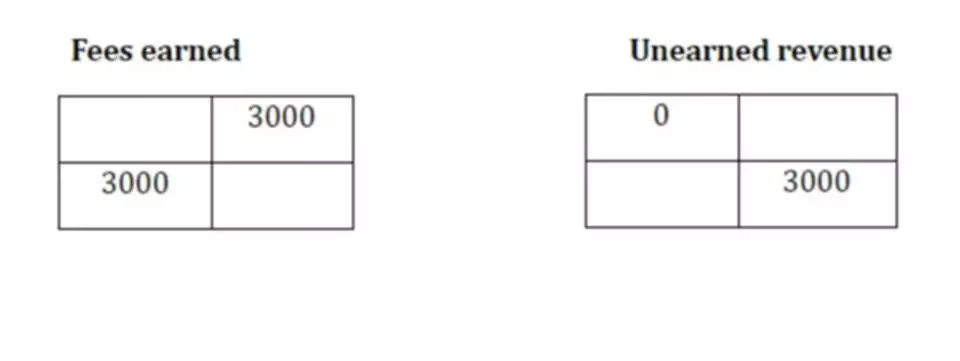Content

It means that cash payment or receipt of the expenses and revenues is a separate matter and is recorded in the statement of cash flows. While prepaid rent can have potential benefits for companies, such as improving liquidity and creditworthiness, it is also vital for companies to be aware of the potential downsides. Organizations can ensure they account for prepaid rent correctly by implementing steps and controls and adhering to the accounting principles and standards, such as GAAP or IFRS.
- This allocation is represented as a prepayment in a current account on the balance sheet of the company.
- If so, the financial statements under-report the expense and over-report the asset.
- Gain global visibility and insight into accounting processes while reducing risk, increasing productivity, and ensuring accuracy.
- At the end of each accounting period, a journal entry is posted for the expense incurred over that period, according to the schedule.
However, the right-of-use asset will be amortized, which will be recognized as an expense on the income statement. Journal entries that recognize expenses related to previously recorded prepaids are called adjusting entries. They do not record new business transactions but simply adjust previously recorded transactions. Adjusting entries for prepaid expenses are necessary to ensure that expenses are recognized in the period in which they are incurred.
Record the initial payment
When there is a payment that represents a prepayment of an expense, a prepaid account, such as Prepaid Insurance, is debited and the cash account is credited. An amortization schedule that corresponds to the actual incurring of the prepaid expenses or the consumption schedule for the prepaid asset is also established. Sometimes, businesses prepay expenses because they can receive a discount for prepayment. Prepaid expenses may also provide a benefit to a business by relieving the obligation of payment for future accounting periods.
Is prepaid rent a tangible or intangible asset?
Pre-paid expenses are intangible assets a company has already paid for and expects to benefit from in the short term. Examples include pre-paid insurance, rent paid in advance, as well as legal and security services.
There may also be tax benefits concerning prepaid expenses, however, all organizations must follow the proper rules related to tax deductions. Prepaid expenses are payments made for goods or services that will be received in the future. Instead, prepaid expenses are first recorded on the balance sheet; then, prepaid rent accounting as the benefit of the prepaid expense is realized, or as the expense is incurred, it is recognized on the income statement. Deferred rent is primarily linked to accounting for operating leases under ASC 840. Nevertheless, differences between lease expense and lease payments also exist under ASC 842.
Potential Implications of Prepaid Rent as an Asset
The content is not intended as advice for a specific accounting situation or as a substitute for professional advice from a licensed CPA. Accounting practices, tax laws, and regulations vary from jurisdiction to jurisdiction, so speak with a local accounting professional regarding your business. Reliance on any information provided on this site or courses is solely at your own risk. They are classified as Assets in a company balance sheet since they relate to expenditures which have some future economic benefit to the company.

Unlike conventional expenses, the business will receive something of value from the prepaid expense over the course of several accounting periods. Prepaid expenses aren’t included in the income statement per Generally Accepted Accounting Principles (GAAP). Thus, prepaid expenses aren’t recognized on the income statement when paid because they have yet to be incurred. Besides, the current assets in the balance sheet are decreased as the prepaid rent is not an asset anymore. Suppose the entity has paid rent for six months and prepares financial statements on a monthly basis.
Common Reasons for Prepaid Expenses
This will be shown in the balance sheet as asset under the line item prepaid expenses. In the accrual basis of accounting, prepaid expenses’ payment is recorded as an increase of prepaid rent in current assets. This results in a problem with prepaid expenses for the entities following the accrual system of accounting. Therefore, businesses must record the rent paid in advance on the company’s balance sheet. The current asset account decreases when the expenses are realized, and the expense account increases.
- Use of our products and services are governed by our Terms of Use and Privacy Policy.
- The prepaid rent account allows the company to show that it has a current asset that will benefit the company at a future date.
- The treatment of prepaid expenses, unearned revenue, accrued income, and expenses vary in accrual and cash accounting.
- Rent is paid by individuals and organizations for the use of a variety of types of property, equipment, vehicles, or other assets.
- Prepaid rent, prepaid insurance, utility bills, interest, etc., are an entity’s most common prepaid expenses.
Make the most of your team’s time by automating accounts receivables tasks and using data to drive priority, action, and results. Visual Lease Blogs – read about the best lease administration software, lease management solutions, commercial lease accounting software & IFRS 16 introduction. On January 1, Superpower Inc, paid $3,000 for a one year insurance policy. The landlord requires that Company A pays the annual amount ($120,000) upfront at the beginning of the year.
Tinggalkan Balasan